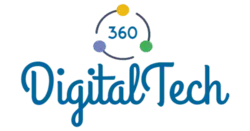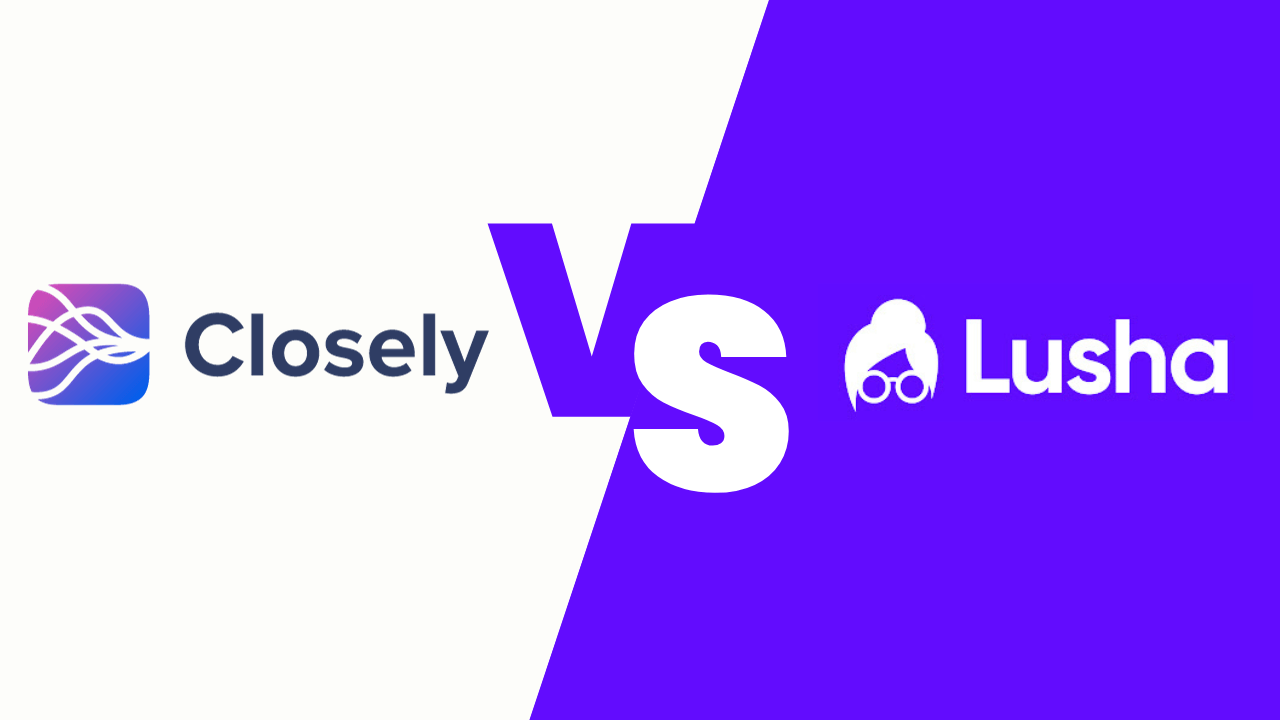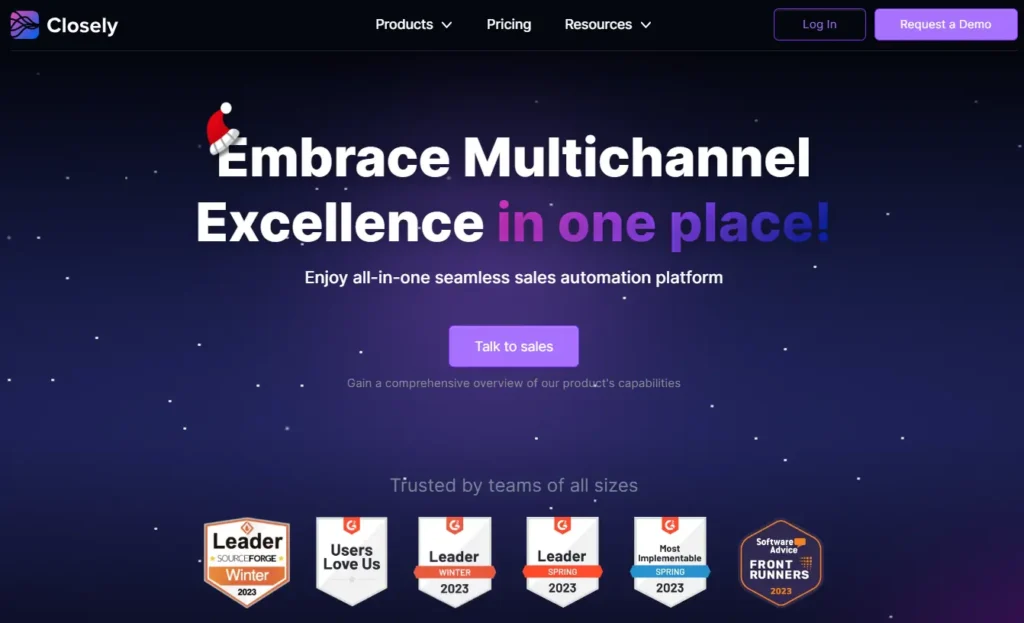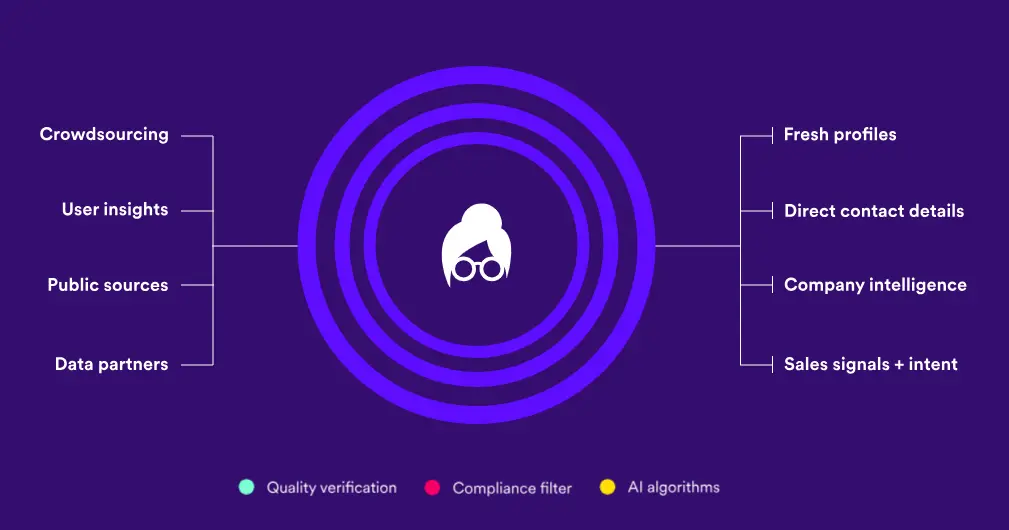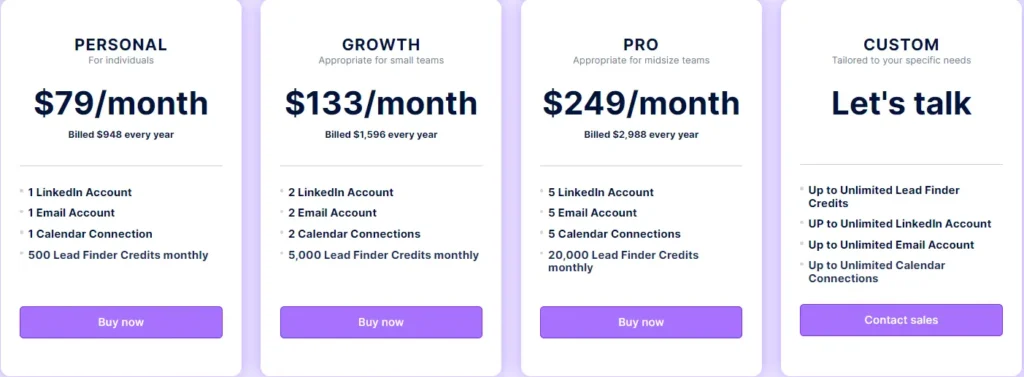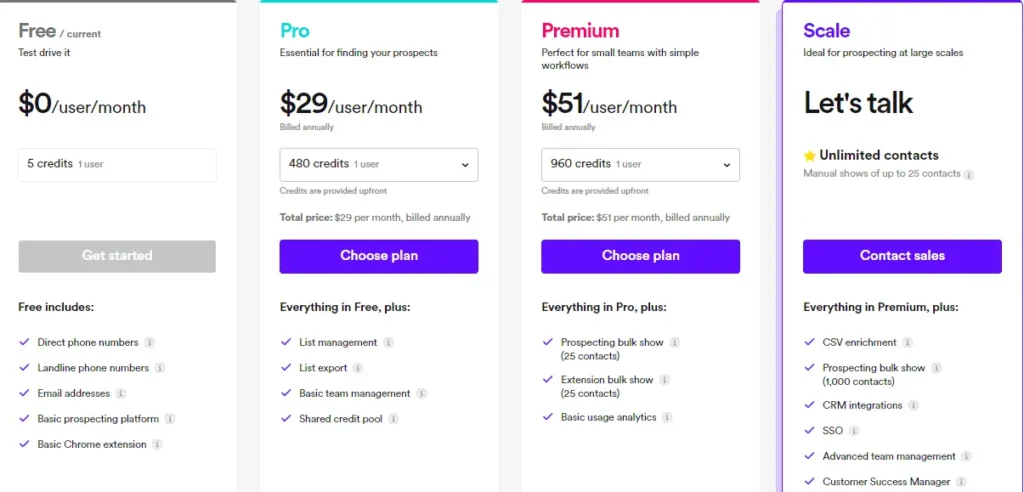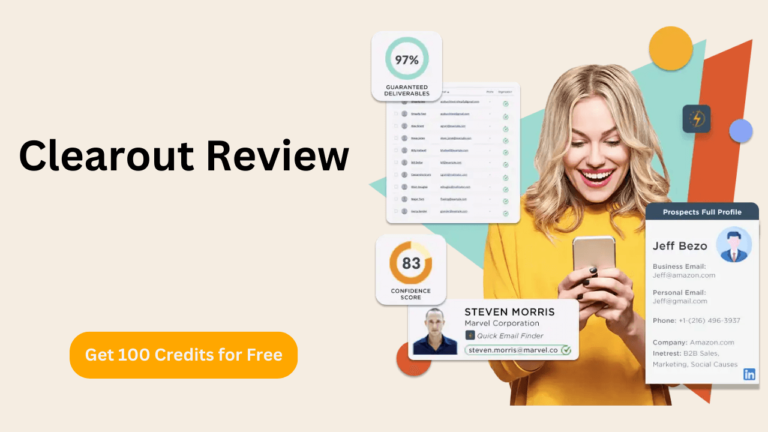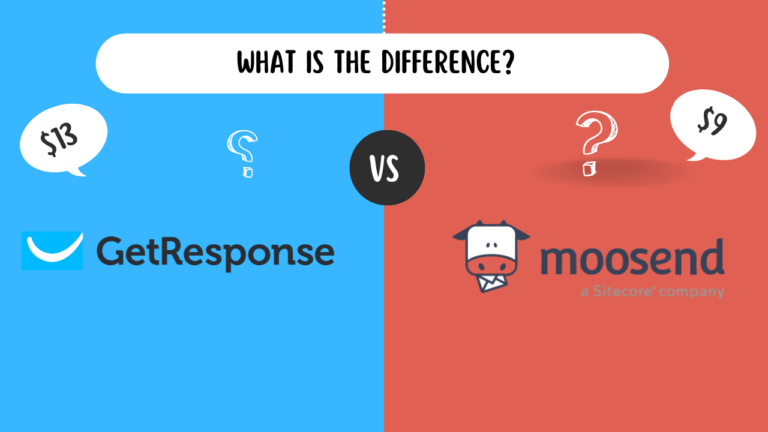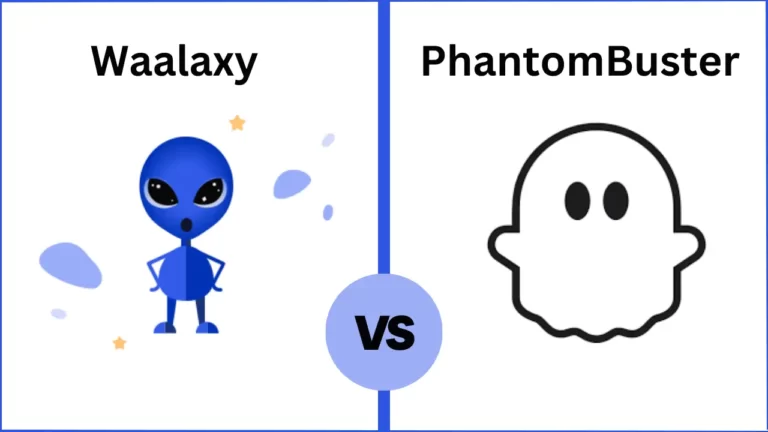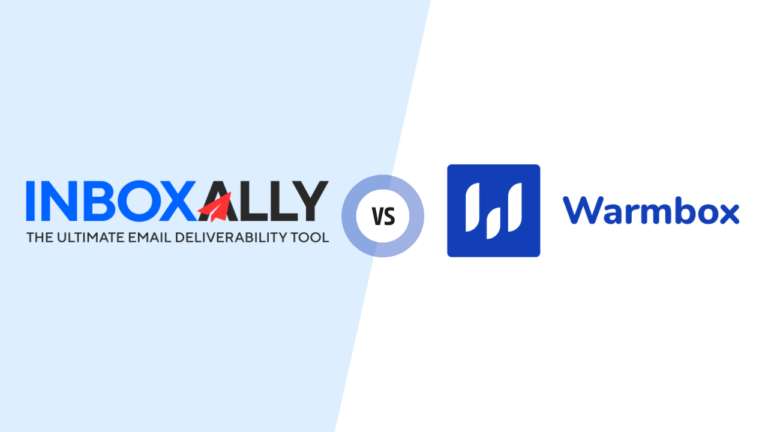If you’re looking for the best lead generation platform for powering your sales, you might be comparing Closely vs Lusha. Both tools have unique features to enhance your lead generation efforts. So let’s look at the major differences between Closely and Lusha.
Deciding between Closely and Lusha?
If you prioritize features, Closely is the standout choice. However, if quality data is your focus, Lusha could be the right fit. Dive into our article, where we break down 11 crucial features, ranging from email finding, LinkedIn automation, email outreach, extension, data enrichment, and more.
After reading Closely vs Lusha’s comprehensive comparison, you will get conclusive evidence in choosing the lead generation software that best suits your business needs.
Closely vs Lusha: Overview
Dive into the dynamic world of B2B lead generation as we explore the head-to-head clash between two industry giants — Closely vs Lusha.
What is a Closely?
Closely isn’t just a platform; it’s your all-in-one solution for multichannel lead generation. From finding emails and extracting LinkedIn data to automating LinkedIn lead generation, conducting email campaigns, and utilizing an in-house B2B database, Closely streamlines the entire process.
As an all-encompassing sales automation platform, Closely simplifies lead generation, delivering high-quality leads at a fraction of the cost—7 times cheaper than its alternatives. With over 10,000 satisfied customers, Closely has earned trust as the go-to solution for lead generation. Learn more in our detailed Closely Review.
What is a Lusha?
Lusha is your go-to for an extensive B2B contact database, offering comprehensive details on prospects—covering company names, contact names, job titles, email addresses, phone numbers, direct lines, reviews, buyer intent, technology usage, location, skills, experience, and more. Armed with this valuable information, your lead generation efforts become seamless, allowing you to send targeted emails and schedule appointments effortlessly.
Trusted by over 280,000 companies, Lusha has proven its mettle in helping businesses connect with their ideal customers. Notable clients include Google, Seismic, Sisense, Zendesk, Yotpo, and many more. Also there are many Lusha alternatives available you can look into.
Closely vs Lusha: Feature Comparison
Step into the arena of B2B solutions as we dissect the features of two major contenders Closely vs Lusha. Uncover the nuances in this comprehensive feature comparison that promises to guide your decision-making process.
Features and Actions |
Closely |
Lusha |
| Free Trial | 50 Credits | 5 Credits |
| Starting Pricing | $79 /month for 500 Credits | $348 / year for 480 Credits |
| Compatibility with | LinkedIn Free and Sales Navigator | LinkedIn Free and Sales Navigator |
| LinkedIn Automation | Yes | No |
| Get Verified Email Address | Yes | Yes |
| Find Phone Numbers | Yes | Yes |
| Get Direct Numbers | No | Yes (Only for a few contacts) |
| Email Outreach | Yes | No |
| LinkedIn Messaging | Yes | No |
| API | No | Yes |
| Integration | Limited | More Option |
| Buyer Intent Data | No | Yes |
| Meeting Calendar | Yes | No |
| B2B Contact Database | 132 Million | 66 Million |
| Safety & Security | Yes | Yes |
| 24/7 customer support | Chat, email, and phone | Chat and email |
In this feature comparison, Closely has a more powerful feature than Lusha. If you’re seeking a comprehensive lead generation automation solution, Closely stands out as the top choice.
Closely vs Lusha: Pricing
-
Closely Pricing Plans
It presents an affordable and transparent pricing structure suitable for most companies. For just $79 per month, you receive 500 monthly credits, along with the ability to connect 1 LinkedIn account, 1 email account, and 1 calendar connection in this cost-effective plan.
Explore Closely’s pricing plan below.
-
Lusha Pricing Plans
Unlike Closely, Lusha’s pricing leans towards the expensive side. Starting at $29 per month when billed annually, providing only 480 credits for the year. This limited offering may not be suitable for larger organizations, and to access more extensive plans, you’ll need to invest more. See the Lusha’s pricing below
Adding to the challenge, Lusha lacks a monthly plan option; you’ll need to reach out to their sales team for pricing details. In comparison, Closely offers a more transparent pricing structure with detailed plans.
Considering the cost and limited features of Lusha, it may not be the most cost-effective choice for companies relying on a contact database for lead generation. Closely, with its comprehensive features, emerges as a complete and worthwhile lead generation tool.
Winner: In terms of pricing, Closely stands out as the top choice.
Closely vs Lusha: Pros & Cons
In this section, you will see the pros and cons of Closely vs Lusha. It will give you enough information to decide on your lead generation platform.
Closely Pros and Cons
Pros |
Cons |
|
|
Lusha Pros and Cons
Pros |
Cons |
|
|
Which one to choose Closely or Lusha?
Look into the feature-by-feature comparison of Closely vs Lusha, unraveling the advantages and drawbacks of these lead generation powerhouses.
1. B2B Database
Discover an expansive B2B contact universe with Closely, boasting a robust database of over 130 million contacts featuring verified email addresses. This dynamic resource grows daily with new records and updates across the USA, Europe, Canada, China, and South America. Uncover vital company information, phone numbers, emails, and more for your prospects in these diverse regions.
Navigating Closely is a breeze, accelerating your sales process by tapping into an extensive B2B database. Refine your search with filters like Company name, Job title, Skills, Company Industry, Size, Location, Revenue, Funding, and beyond.
On the other hand, Lusha offers a database of 66+ million B2B contacts with verified emails. Also, you will get phone numbers for a few records. It primarily focuses on the USA and Europe. Only a few contacts you will get from the Middle East, China, South America, and Asia.
In the realm of contact databases, Closely outshines Lusha with its broader reach, providing access to more individuals and enhancing your sales outreach. Elevate your strategy with Closely for a comprehensive and effective approach to B2B connections.
Winner: Closely emerges as the undisputed champion in the realm of B2B databases.
2. Data Enrichment
Both platforms excel in data enrichment, effortlessly plugging gaps in your database with up-to-date contacts. Seamlessly integrate either Closely or Lusha with your CRM to automate the data updating process, ensuring a consistently accurate and clean database.
Whether you choose Closely or Lusha, both serve as robust data enrichment solutions. Enhancing your dataset with updated information is key to maximizing conversion rates and overall productivity.
Winner: Both tools are useful for data enrichment.
3. Email Finder and Scraper
Email finder is an important feature for sales prospecting. Closely and Lusha allow you to find emails on LinkedIn. You can scrap LinkedIn prospect information including company name, prospect name, job titles, email address, phone numbers, website, revenue, location, and more with just one click. All the contact information can be stored in your CRM platform by integrating with Closely or Lusha.
LinkedIn email finder is for finding leads on LinkedIn. You can extract LinkedIn leads in bulk and save time in collecting leads. It’s a must-have tool for sales and marketing professionals, providing an efficient way to boost productivity.
There is not much difference between Closely vs Lusha email finder. Both tools offer accurate and reliable information.
Winner: For LinkedIn email finder, explore options like Closely, Lusha, PhantomBuster, GrowMeOrganic, SalesQL, and more to elevate your prospecting game.
4. LinkedIn Automation
Here you see a clear difference between Closely and Lusha. Closely takes the lead by offering complete automation for LinkedIn lead generation – from lead extraction to sending connection invitations, automated messages, and tracking outreach results.
There are more than 850 million users on Linkedin. Manually connecting with these decision-makers on Linkedin can be time-consuming. However, Closely’s LinkedIn automation streamlines this process, allowing you to autopilot connection requests, send messages, like posts, foster relationships, and drive sales conversions.
On the other hand, Lusha lacks these crucial automation features, necessitating reliance on third-party tools and incurring additional costs.
Winner: When it comes to LinkedIn automation, Closely emerges as an exceptional tool worth considering.
5. Multichannel Campaigns
Closely stands out as a versatile multichannel campaign platform. Providing seamless integration of email and social media automation. Engage prospects through simultaneous email and LinkedIn outreach, employing personalized sequences to foster connections. With Closely automation, you can effortlessly run lead generation activities for higher conversion rates.
On the other hand, Lusha focuses on being a Sales intelligence platform, offering top-notch databases with buyer intent but lacking multichannel campaign capabilities.
Winner: Closely takes the lead with its additional features, making it a comprehensive solution for your campaign needs.
6. Email Outreach
Within Closely, unlock the power of email outreach complemented by warm-up features, ensuring a sterling sender reputation and heightened inbox placement with impressive open rates. Seamlessly execute email campaigns, create sequences, and monitor performance—all within the Closely platform.
The Email Outreach feature within Closely isn’t just useful; it’s a cost-effective solution allowing unlimited users to send emails, amplifying your sales conversion potential.
Whereas, Lusha lacks a direct email-sending option. Instead, it integrates seamlessly with popular CRMs like Hubspot, Salesforce, Outreach, and SalesLoft to facilitate email communications.
Winner: Closely’s lead generation package with advanced email-sending features, outshines all other software for maximum effectiveness.
7. Meeting Scheduling
Closely delivers a built-in appointment-setting calendar akin to Calendly, streamlining meeting arrangements for your sales team. Customize your page, embed booking displays on your website, and centrally manage team bookings—all in one place. Closely’s inclusive features eliminate the need for extra appointment-setting tools, saving you money for higher-priority resources. In contrast, Lusha lacks these versatile features in its package.
Winner: Closely takes the lead as the ultimate appointment-setting software.
8. Buyer Intelligence
Buyer intelligence is the key data revealing which companies seek specific solutions. Lusha provides valuable intent data, helping you precisely target prospects actively seeking your product. Beyond intent, Lusha offers comprehensive insights including technology usage, funding details, and specific solution preferences based on filters like intent, industry, revenue, email, phone number, and more.
In contrast, Closely offers a robust B2B contact database but lacks buyer intent data for pinpointing specific prospects actively seeking solutions.
Winner: Lusha takes the crown for Buyer Intent Data supremacy.
9. Chrome Extension
Both Closely and Lusha offer potent Chrome extensions tailored for lead collection on Linkedin. Perfect for teams exclusively utilizing LinkedIn for B2B contacts. However, for lead collection beyond LinkedIn, explore PhantomBuster and GrowMeOrganic Chrome extensions.
Winner: Lusha and Closley both of you can consider.
10. Integration
Currently, Closely offers limited integration options including Hubspot, Webhooks, Salesforce, and Zapier.
On the other hand, Lusha provides a broader range, incorporating HubSpot, Salesforce, Outreach, SalesLoft, Gmail, Outlook, Zapier, Microsoft Dynamics, Pipedrive, Zoho, Bullhorn, and Outreach.
Winner: Lusha emerges victorious with a more extensive array of integration choices.
11. Customer Support
In Closely’s basic plan, enjoy live chat support for prompt issue resolution. Opting for a higher plan brings custom training, dedicated account management, and priority support. Meanwhile, Lusha lacks direct customer support, requiring reliance on a help center and articles. For unresolved issues, contact the Lusha team via email.
Winner: Closely stands out with exceptional customer support, ensuring prompt issue resolution and personalized assistance.
Conclusion
Both Closely and Lusha offer distinct strengths in various aspects of B2B tools and services. Closely excels with a comprehensive B2B database, lead generation package, LinkedIn automation, and exceptional customer support. On the other hand, Lusha shines in providing robust buyer intent data and a broader range of integration options.
Your choice between the two should align with your specific business needs and priorities. Whether it’s the extensive integration options of Lusha or the all-encompassing features and support of Closely, make a decision that best complements your goals and workflow. Each platform brings its unique advantages to the table, catering to diverse requirements in the dynamic landscape of B2B operations.
